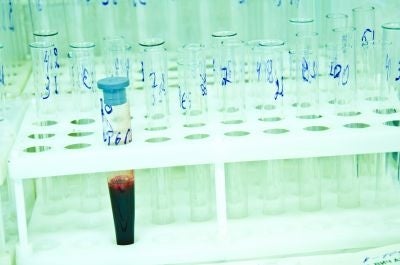Your support helps us to tell the story
From reproductive rights to climate change to Big Tech, The Independent is on the ground when the story is developing. Whether it's investigating the financials of Elon Musk's pro-Trump PAC or producing our latest documentary, 'The A Word', which shines a light on the American women fighting for reproductive rights, we know how important it is to parse out the facts from the messaging.
At such a critical moment in US history, we need reporters on the ground. Your donation allows us to keep sending journalists to speak to both sides of the story.
The Independent is trusted by Americans across the entire political spectrum. And unlike many other quality news outlets, we choose not to lock Americans out of our reporting and analysis with paywalls. We believe quality journalism should be available to everyone, paid for by those who can afford it.
Your support makes all the difference.Researchers into HIV said they had identified 17 potent antibodies whose discovery opened up valuable pathways in the search for an AIDS vaccine.
Antibodies are the foot soldiers in the immune system, latching onto viral or microbial intruders and tagging them for destruction by specialised "killer" cells.
Priming antibodies to recognise pathogens is a textbook method in vaccines, although it has proven agonisingly hard in the case of the human immunodeficiency virus (HIV) which causes AIDS.
The new "broadly neutralising" antibodies are the biggest single haul so far and also many times more potent than those found previously, the scientists report in Thursday's issue of the British journal Nature.
"Most antiviral vaccines depend on stimulating the antibody response to work effectively," said Dennis Burton of the Scripps Research Institute in La Jolla, California.
"Because of HIV's remarkable variability, an effective HIV vaccine will probably have to elicit broadly neutralizing antibodies. This is why we expect that these new antibodies will prove to be valuable assets to the field of AIDS vaccine research."
The International AIDS Vaccine Initiative (IAVI), a US NGO that sponsored the search, said the quest for HIV-neutralising antibodies was "perhaps the greatest challenge" facing vaccine engineers.
The 17 antibodies were isolated from four individuals with HIV, an achievement similar to looking for a needle in a haystack as only a very small number of people produce these powerful molecules.
AIDS has claimed some 30 million lives since the disease came to public notice in 1981. Around 34 million people today are infected with HIV, according to UN estimates.
ri/mb

Join our commenting forum
Join thought-provoking conversations, follow other Independent readers and see their replies
Comments